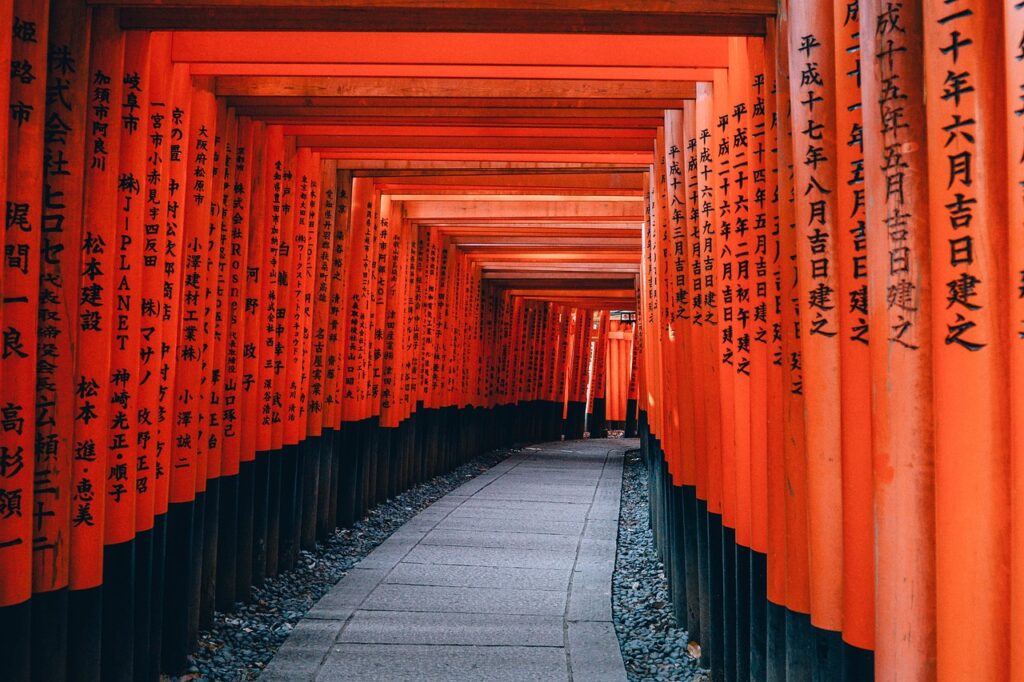Imagine you are a 22 y/o Japanese graduate living in Tokyo.
You are just getting out of college ready to get into the business world. Probably you are a little bit scared or excited about what the future has prepared for you.
The average monthly salary for a Japanese college graduate is about ¥ 283,000 yen or about $1956 usd.
So, is that good? That is always relative to ask.
Changing the lens
The equivalent of that would be asking if a stock is cheap or expensive merely based on its price. To further know if it is really cheap or expensive, we need to compare the Price to its Earnings hence the P/E ratio.
Ok so if have the monthly salary that would be the Earnings part of the equation then what price should we compare it to? Easy, Price of living.
Thats the most fundamental reason why anyone works, to be able to pay for the most basic necesities to live. Let’s now take the most basic one, shelter or housing.
Perfect so now let’s see what the average home price in Tokyo is.
According to different sources the average price of a small condominium is about
¥ 50-100 million yen or about $455,000 – 910,000 usd .
(After seeing those numbers, I think I don’t even need to go for a big private home to make a point)
Having that information if we annualize the salary comes to ¥ 3,396,000 about $23,472 usd.
Now lets calculate our P/E ratio for an apartment costing 70 million yen ( $483,000 usd)
Price / Earnings
¥ 70,000,000 / ¥ 3,396,000 = 20.61
This gives us a P/E: 20.6
Now if you have already some experience investing you would know that a P/E of 20 is by no means “Cheap”.
In other words, it takes 20 years of your yearly salary to be able to afford a condo in Tokyo.
Worse than that is the fact that this assumes being able to save every yen and not spending on food, entertainment, going out, emergencies, nothing.
Not very real, so what if we could save half of it a third of that?
That would shoot up the P/E to 40-60 BUT that is assuming real estate prices increase in accordance with your salary, if real estate prices go up higher than your salary (which is what has been happening in the last decades) then imagine a P/E of 80-100.
In other words, home ownership is basically impossible.
Now you may say ok but that is Tokyo, one of the most expensive cities in the world.
I hear you, but that doesn’t change the reality for Japan or most of the world in fact.
Maybe in your country of residence the same housing P/E ratio is not as bad as Tokyo. Consider the fact that even if some places are greater than Japan in terms of housing affordability, comparison should not be mainly towards different countries but towards previous decades.
If we investigate a little bit more about it we will find out in many countries their housing P/E was about 3 to 6, and it just increased and went higher and higher every year.
The question is why did that happen?
Housing prices have just gone a lot higher than wages,is as simple as that.
But there is more to it, housing prices have even outpaced the growth of inflation!
Now let me say that again because it is astounding fact.
Housing prices have outpaced the inflation rate.
Why is this so significant in my opinion?
Well, it is understandable that we don’t want the price of our daily needs and little pleasures to go up. Like the price of gas or our early morning coffee, the price of going to the movies, etc.
But i think one of the most significant purchases is the place where we live, is a place of our own, where we spend a lot of time, and that is very personal. This combined with the fact that is probably the biggest purchase for most of individuals.
Think about it. What would you prefer the most the price of your favorite cheese $5 going up 400% to $20 or your dream home going from $400,000 to $2 Million. Probably if you already own the home you are fascinated by the idea. That is why most of the wealth is in hands of people age 50+ and older, but that is for another post.
Can you see now why is a BIG problem that housing prices are outpacing the growth rate of both salaries and inflation?
There is Hope
I just explained to you the difficulties of home ownership for younger generations. While having a “normal” job like being a teacher, could previously afford buying a home and supporting your family, the situation now is very different.
Complaining about a problem has never make any changes in the history of the world.
Thinking of solutions to the problem does.
Here are my thoughts on what can bring a solution to this current dilemma:
- Bitcoin: The process would be to use the weaker fiat currency, Yen, Usd, Arg, etc. to buy an immutable and finite digital currency as is Bitcoin. Then understanding it as a savings strategy. If you understand that fiat currencies lose 99% of their value over time it will be easier for you.
Important note on this point. If you decide to follow this path, make sure to properly understand how to store and secure your Bitcoin or any other crypto for that matter, use a hardware wallet and never leave it on exchanges.
- Start a Business: Yes, this may sound cliche but starting a business offer a limited amount of loss (your initial investment) and uncapped gains if the business is successful which makes asymmetry work in your favor.
The best part about this option today is that the internet enables to skew the risk/reward ratio even more in your favor this is because the cost of starting a new business online whether is e-commerce, info products, starting your own blog, Amazon FBA, Newsletter, writing an e-book. are very low cost compared to a traditional business where you had increased initial costs.
You could combine then investing some of the earnings of your business into bitcoin. In fancy words, converting your balance sheet into bitcoin. Just like MicroStrategy and Tesla did.
- Invest: This is one of my favorite options to be honest. It gives you flexibility and freedom of time. Learning to invest will always be valuable a skill that will stay with you your whole life. Depending on if you learn real estate investing, stock investing, private equity, venture capital, etc. They have a lot in common.
The thing with investing is that it requires knowledge and capital. So, if you are starting out with $500 usd, it would be better to spend that on knowledge to increase your skills, or even starting an online business.
I began investing with less than 1K but did it not to get rich or get an income but to start learning with real money on the line. Then increased the amounts to 10K, 30K and so on.
It is important to do, because is not the same losing 20% on 2K than 20% on 2 million.
As the best investors know, is not the amount of intelligence you have but how much you can stomach the volatility and assets like stocks, Bitcoin and even GOLD can get a 50% drawdown easy.
So you need to get to know yourself first by investing smaller amounts of money. - Leverage: I use a combination of the above mentioned, also it there is the possibility to use leverage to maximize your gains BUT this should be done with more in-depth knowledge of what you are doing.
It could be through different vehicles such as:
Mortgage loans, Financial derivatives like options, Thinking how to invest in a correlated asset for leverage, Hedging, Loans with an interest rate that allows you to invest in an asset that your think will outpace the interest % payment, etc.
This of course should be very small part of the portfolio as leverage can wipe you out if you don’t know what you are doing.
To be honest all of that is possible and i do it from time to time, but a simple “Buy and Hold” of great assets, most of the time outperforms most of the complex strategies. Keep that in mind.
Closing thoughts
We are living through times that are wildly different than before, either in terms of costs and rising inflation, but also in technological and computing power.
Instead of complaining of the challenges presented to the younger generations today, i encourage to look for the solutions and alternatives that are here now and weren’t 20 years ago.
It is no coincidence that i chose the example of a Japanese college student, for those of you who know your economic history would know that Japan is known to be the first country to implement “Quantitative easing” measures or in other words “money printing.”
The results that created in the economy are a case for study, but in 2023 almost all major economies are in some sort of “QE” with a debt spiral that has no real way of ending without causing a major collapse, we are living through interesting times.
Let’s do the best with that we have now, and keep remembering money is just a tool, live is a whole lot richer than just being trapped in the accumulation game.
Have a great day, take care!
Zifush.

